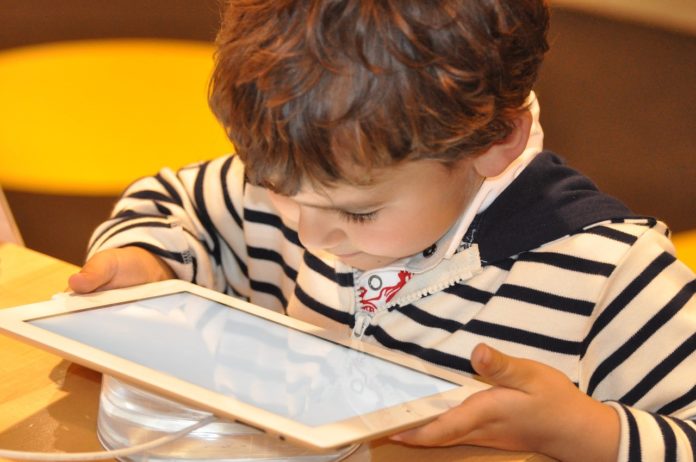Australian researchers reported in JAMA Pediatrics that even one hour screen time can affect how much a baby listens to conversations at home
If your baby is taking too long to start speaking then it is possible that your go-to baby sitter – your mobile phone is to blame. Along with your tablet, television and sundry other screens scattered within the house.
Researchers from Australia and the United Kingdom have found associations between screen time, how much babies actually pay attention to the conversation in the home and consequently when they utter their first words. They concluded that what they call technoference – interference by technology is the reason why many Australian children are articulating vocally at a later stage. In a study published in JAMA Pediatrics they wrote: “…young children’s exposure to screen time is interfering with opportunities to talk and interact in their home environment. This finding has implications for interventions and supports aimed at promoting a language-rich home environment, with families needing support in understanding the potential association of screen time with opportunities for children and adults to talk and interact in their home environment.”
It is widely accepted and established with evidence that babies who grow up in a household where there are lot of conversations, tend to speak earlier. This also has an effect on their vocabulary, IQ and brain function with parent-child talk holding the key to all of these developments.
The study included 220 Australian families (120 girls [54.6%]; mean gestational age of children was 39.3 weeks; mean age of mother at childbirth, 31.3 years). Models demonstrated that increases in screen time were associated with decreases in measures of parent-child talk. The largest decreases were seen at 36 months, when an additional minute of screen time was associated with a reduction of 6.6 adult words, 4.9 child vocalizations, and 1.1 conversational turns. Even the current World Health Organisation guidelines of one hour screen time per day for babies aged 2-4 years can cause a loss of vocalisation in children.
The researchers wrote: “Having a language-rich home environment is critical to children’s language development, which promotes school readiness and success throughout the educational system. This study found a negative association between screen time and parent-child talk, which suggests that screen time is a potential mechanism that could be the basis for an intervention to promote a home environment with more parent-child talk. Implications need to be considered, however, within the reality of current family life. It is unrealistic to assume that all families will simply stop using screens with their young children. Instead, programs and policies could focus on ways to encourage families to use screen time as an opportunity for interaction with their child.”


